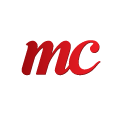ANALYSIS Of the Foreseeable future Troubles FOR Healthcare Administration
ANALYSIS Of the Foreseeable future Troubles FOR Healthcare Administration
Mintzberg observes that management is acquired by acting, training the confrontations and potential customers of leadership. Yet, the very best and most achieved are intuitive performers who insightfully know their demeanors, ways and deeds. Additionally, their influence on most people, the corporation, the ability to check into, report deeply their particular performance setting it in a broader context that may be enclosed by appropriate theories, models and concepts. As per Peter Drucker, healthcare institutions are amid the hardest establishments to supervise. Supervisors are required to count on the final results of modern systems by picking out people who give even better returns than expenses. They have to scrutinize and concur on tough money undertakings that give mandatory money resources without the need for jeopardizing long-term financial legal responsibility. Supervisors are required to solve inside variations amongst industry experts thus regulate rival specifications of culture, stakeholders, taxpayers, patients and workers.
Smith and Walshe notice that notably formulated state healthcare method will undoubtedly be faced with four unavoidable troubles. Namely:
O Inhabitants change
O The speed of technological development
O Shifting person and shopper expectations; and
O Rising charges below global fiscal depression.
The populace modification will mean as citizens are likely to dwell more, the populace of aged people young and old boosts at a rapid price. The aged comprise utilization of health care institutions considerably additional thanks to their degenerating entire body functions. As buyers reside lengthier the associated fee to help keep them alive together with the probability to create intricate and persistent illnesses increases.http://ma-dissertations.com/ World Health Organization postulates this due to well-being hazards most notably cigarette use, unfitness and good feeding on patterns.
Charge of technological improvement pertains to population switch in that it mirrors upward means to include persistent health problems so extends everyday living. By increasing technological improvements in pharmaceuticals, surgery, diagnostics and repair shipping through cell phones new ways of managing disorder and overcome are discovered each working day. Largely, this implies cure processes that aren’t only beneficial but often times though extremely pricy to administer when compared to the current types.
In these modern times buyers ought a bit more from health vendors regarding support delivery than their moms and dads required. They can be not happy with the normal reception of health and fitness support approved and dispersed because of the medical companies. They want to know particularly precisely what is ailing them, methods to protect against relapse and so forth. Like any other sectors of specialization like banking, housing, education, they hope to always be consulted and around date considering that they are really the tip consumers. This represents a populace which includes a great deal more information, is coherent and likely to be informed and inquire for brand spanking new and exorbitant therapies.
The ever-increasing price tag of healthcare is the results of the a few difficulties highlighted before. Every of the challenges exerts force for more resources. Even beneath acute global fiscal despair, governments have little if any solution but to elevate their paying on health and fitness facilities which certainly not seems to be plenty of. This generally forces governments to scale back investing on other equally significant financial sectors just like education and learning. Through the years innovation of higher and much less expensive computer systems, cars and banking appears to have been witnessed. To the other hand, healthcare prices are somewhat great and carries on to rise along with demand for it.
A report by Andrea Chipman for that Financial Intelligence Device observes Africa as property into the world’s poorest populations and at the same time grappling with several health and fitness crises. The report proceeds to assert that terminal conditions are now being matched by preventable communicable and parasitic conditions. It identifies the method of funding as inadequate inside of the health care shipping plan. Government expenditure carries on to always be inadequate despite the fact that worldwide funding looks unsure inside the present financial surroundings. Not enough ample public health care will mean the poorest Africans have little if any entry to care. What’s more, they generally lack the fundamental necessities of well being these types of us clean h2o, sanitation and balanced eating habits. This offers an important obstacle in controlling healthcare in the continent
Worldwide healthcare devices are in a verge of alteration. The transformations that nations around the world have out from the up coming several several years will undoubtedly be immensely important to reducing the mortality rates primarily in crafting economies. As additional and even more people young and old end up educated healthcare steps notably while using the enhanced use of online, governments has to be for the fore-front to deliver sufficient, excellent and timely healthcare methods. Professional medical college students ought to be taught managerial skillsets to assist while in the management of health and fitness delivery establishments.
Bibliography
Chipman Andrea. The upcoming of health care in Africa .Economist Intelligence Device. The Economist accessed June, 17 2014
Baker R.G. PH. D (n.d) Healthcare Professionals inside the Complex Community of Healthcare, 24 accessed on June, 17 2014
Mintzberg, H. Managers Not MBAs. London: Prentice Hall, 2004
Peck, E. Organizational Growth in Healthcare: Strategies, Innovations, Achievements. Oxford: Radcliffe Professional medical Push, 2004
Smith Judith and Walshe Kieran. Introduction: The existing and long term issues of health care administration. accessed June, seventeen 2014
World Medical Group. Preventing Serious Illnesses: A vital investment decision, Geneva. WHO, 2005


